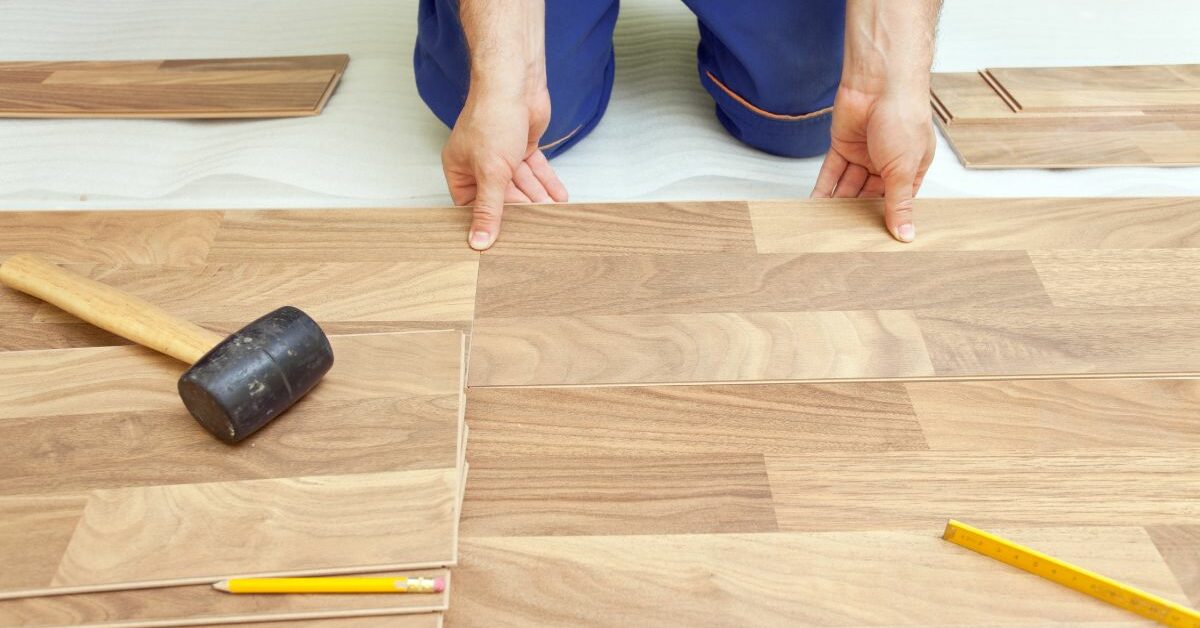How To Become A Flooring Contractor?
If you’re looking to become a flooring contractor, there are several steps you need to take to succeed in this field. Flooring contractor jobs require specific skills and knowledge, as well as experience working with various materials and tools. In this guide, we’ll discuss what it takes to become a successful flooring contractor and how to start your career in this industry.
Steps To Becoming A Flooring Contractor
A flooring contractor is a specialized skilled professional who installs, repairs, and maintains various types of flooring. You’ll need to follow these steps to become a flooring contractor:
- Gain proper training and industry experience.
The first step to becoming a successful flooring contractor is to gain proper training and industry experience.
You could start by enrolling in a technical school or a trade school that offers courses in carpentry, flooring installation, and finishing. These programs will give you hands-on experience in working with different tools, techniques and materials, providing an overview of all aspects of the flooring industry. - Apprenticeship
After completing your education, it’s vital to gain practical experience by working under a professional flooring contractor or taking on small projects independently. This apprenticeship will give you the opportunity to learn what it takes to manage different types of customer needs, as well as good communication and client management skills.
- Certification
Once you have gathered enough experience, you can start to consider obtaining an appropriate certification. While not always necessary, some employers may require a licensed flooring contractor for hire.
Skills Needed to Become a Flooring Contractor
In addition to these critical skills, there are several other competencies that a flooring contractor should possess. One of these is time management skills. A flooring contractor must be able to manage their time effectively to ensure that they meet project deadlines and deliver high-quality work. They should also have excellent organizational skills to keep track of all the materials, tools, and equipment needed for each project.
Furthermore, a flooring contractor should have a keen eye for detail. They need to be able to identify any imperfections or issues with the flooring and take the necessary steps to correct them. This attention to detail is also essential when it comes to measuring and cutting flooring materials accurately.
A good flooring contractor should also be physically fit, as the job requires a lot of physical labor. They must be able to lift heavy flooring materials, operate heavy machinery, and work on their feet for extended periods. Stamina and endurance are also necessary qualities for a flooring contractor, as they may have to work long hours to complete a project.
Finally, a successful flooring contractor should have a strong work ethic and be committed to delivering high-quality work. They should be reliable, punctual, and professional at all times. Building a good reputation in the industry is crucial for a flooring contractor to attract new clients and secure repeat business.
In summary, becoming a successful flooring contractor requires a combination of technical, interpersonal, and physical skills. By possessing these skills and committing to delivering high-quality work, a flooring contractor can build a successful career in this exciting and challenging field.
What is a Flooring Contractor?
A flooring contractor is a highly skilled professional who specializes in the installation, repair, and maintenance of different flooring materials. These materials can range from hardwood, carpet, tiles, and various vinyl types.
Flooring contractors are knowledgeable about the different types of flooring materials available in the market and can provide expert advice on which material would be best suited for your home or office. They are also trained to measure and cut the materials to ensure that they fit perfectly in the designated space.
In addition to installing new floors, a flooring contractor can also repair and maintain existing floors. This includes fixing any damage, replacing broken tiles, or refinishing hardwood floors to restore their natural shine and beauty.
To become a flooring contractor, one must undergo extensive training and acquire the necessary certifications. This includes learning about the different types of flooring materials, installation techniques, and safety procedures. They must also have a keen eye for detail and be able to work efficiently to complete each project on time and within budget.
Once a flooring contractor has gained the necessary education, skills, and experience, they can work for themselves or join a company as a professional flooring contractor. Working for a company can provide them with a steady stream of work and the opportunity to work on larger projects. However, many flooring contractors choose to work for themselves to have more control over their schedule and work on projects that align with their interests and expertise.
A flooring contractor is a highly skilled professional who plays a vital role in the construction and renovation industry. They are experts in their field and can provide valuable advice and services to help you achieve the perfect flooring for your home or office.
The Benefits of Working as A Flooring Contractor
Working as a flooring contractor is a rewarding profession that offers a variety of benefits. If you are considering a career in this field, you will be pleased to know that there are many advantages to this line of work.
Job Flexibility and Control Over Schedule
One of the most significant benefits of working as a flooring contractor is the flexibility it offers. As a contractor, you have control over your schedule and can choose the projects you want to work on. This flexibility is ideal for individuals who value work-life balance and want to have control over their time.
High Earning Potential
Another benefit of working as a flooring contractor is the potential for high earning potential. The amount you can earn will depend on factors such as the size and complexity of the project, your level of experience, and the demand for your services. However, even small jobs can provide a decent income, and larger projects can result in substantial earnings.
Challenging and Exciting Tasks
Working as a flooring contractor also provides the opportunity to take on challenging and exciting tasks. As a contractor, you will be responsible for transforming homes and businesses with your creative vision and impeccable handywork. You will have the satisfaction of seeing your work come to life and making a real difference in people’s lives.
Whether you are installing new flooring, repairing damaged floors, or refinishing old ones, there is always something new and exciting to learn in this field. You can take pride in your work and enjoy the satisfaction of knowing that you are providing a valuable service to your clients.
Working as a flooring contractor is a fulfilling and rewarding profession that offers many benefits. With job flexibility, high earning potential, and challenging and exciting tasks, it is an excellent career choice for those who value independence, creativity, and hard work.
Thus, it is fair to conclude that becoming a successful flooring contractor requires strong technical skills and ample experience in the field. You can start by enrolling in a reputable institution for the necessary coursework and then gain the much-needed experience by working with an established flooring contractor.
Additionally, developing strong communication and problem-solving skills will help in providing an efficient and reliable service to clients, while also leading to a successful career trajectory.
By following these essential steps and skills, you’ll be well on your way to becoming a highly successful flooring contractor, creating beautiful floors that will leave a lasting impression on your clients.




